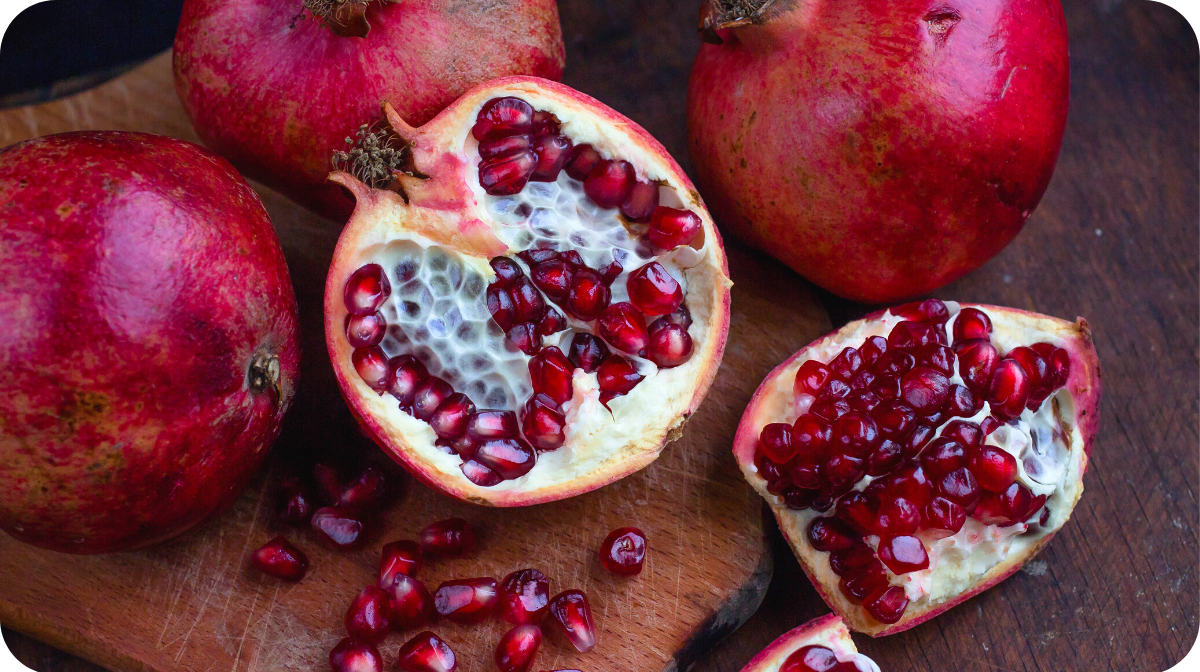The seeds are jewel red, stain everything they touch, and taste absolutely delicious. If that weren’t enough to entice you to the realm of pomegranates, consider the latest research that indicates pomegranate may have a role to play in preventing and fighting colon cancer.

This shouldn’t be surprising. Nutritionists, dietitians, and medical professionals have long understood the beneficial properties of this wonderful fruit. High in fiber, dense with antioxidants and vitamins, and full of polyphenols linked to heart health, pomegranates have earned the title “super food.”
But a new study published in the journal Immunity points to the role of a compound found in pomegranates—urolithin A—in fighting colorectal tumors. The study indicates that the metabolite spurs the immune system to activate T cells in fighting tumor formation. The compound repairs old and damaged T cell mitochondria, making them more effective in destroying cancer cells.
The best part of this news is that a natural agent is boosting the immune system, rather than attempting to attack cancer cells directly. It empowers the body to heal itself. The even better news? The compound appears to be effective when consumed with the whole food or taken as a derivative.
You can begin enjoying the potential benefit today, by adding pomegranate seeds into your daily diet.
Pomegranate Uses
There are many ways to get your daily fill of the red jewel fruit.
- Salad. The seeds are a trifecta for any salad, adding a burst of fresh flavor, eye-catching color, and delightful texture. Works equally well in a dinner salad or a fruit salad. You can even add pomegranate seeds to a pasta salad!
- Yogurt. Pomegranate and yogurt are natural partners and a match made in heaven. Full of flavor and freshness, Greek yogurt, walnuts, flax seeds, and pomegranate seeds create a wonderful dessert.
- Grilled fish and meats. The contrast between grilled salmon or sirloin steak and the juicy crunch of pomegranate seeds spells absolute yum and takes your dinner flavors to a whole new level.
No matter how many you eat, pomegranates alone likely won’t cure or prevent cancer. But they are certainly a valuable weapon in the battle to keep your body cancer free and avoid other diseases in the process.
Share some love if you like this post!







